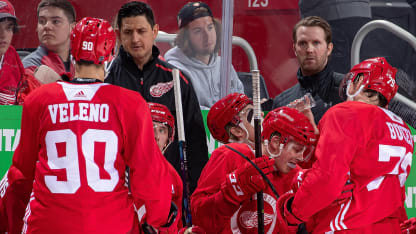"On top of that, we're in contact with their trainers, their skating coaches, their skills coaches, really anyone that they're working with we're in close contact with to help with the structure of their workouts, to just let them know what we see and what we'd like to see them work on this summer," Horcoff added. "It has been more difficult given the situation because each person's different and that seems to change every week. This might be yeah, the rinks are open or maybe this week for some of the guys, they had some local COVID infections and now the rinks are closed and you have to kind of adjust. You're calling around trying to find ice.

